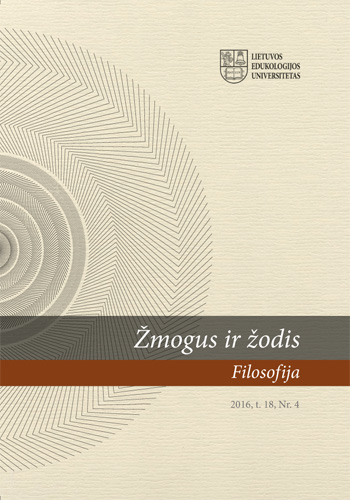Nekoreliuotos realybės problema Quentino Meillassoux ir Grahamo Harmano spekuliatyviajame realizme
Problem of uncorrelated reality in the speculative realism of Quentin Meillassoux and Graham Harman
Author(s): Mindaugas ŠulskusSubject(s): Recent History (1900 till today), Contemporary Philosophy, 19th Century
Published by: Vytauto Didžiojo Universitetas
Keywords: speculative realism; Meillassoux; Harman; correlationism; groundlessness;
Summary/Abstract: The current article discusses the positions of two representatives of the speculative realism movement. This is a relatively new movement of the 21st century. Meillassoux and Harman disagree with the postulates of Immanuel Kant and post-Kantian philosophy, which are referred to as correlationism. Both authors commit their attention to one or another type of the conception of reality. Comparing the positions of both authors, the aim of the research is to show how the authors of speculative realism rethink the turn to reality in the context of contemporary philosophy. It is maintained that the positions of the two representatives of the speculative realism movement are different. Harman stays within the frame of the tradition of continental philosophy. He maintains minimal creed of continental philosophy, namely, irreducibility of both theory and practice to one of the extremes – empirical material data or thought. Meanwhile, Meillassoux’s speculative attempt is more radical. He tries to separate radically reality and thought. Primary mathematizable qualities of objects refer to uncorrelated reality, whereas secondary qualities of an object – to correlationists.
Journal: Žmogus ir žodis
- Issue Year: 18/2016
- Issue No: 4
- Page Range: 6-21
- Page Count: 16
- Language: Lithuanian

